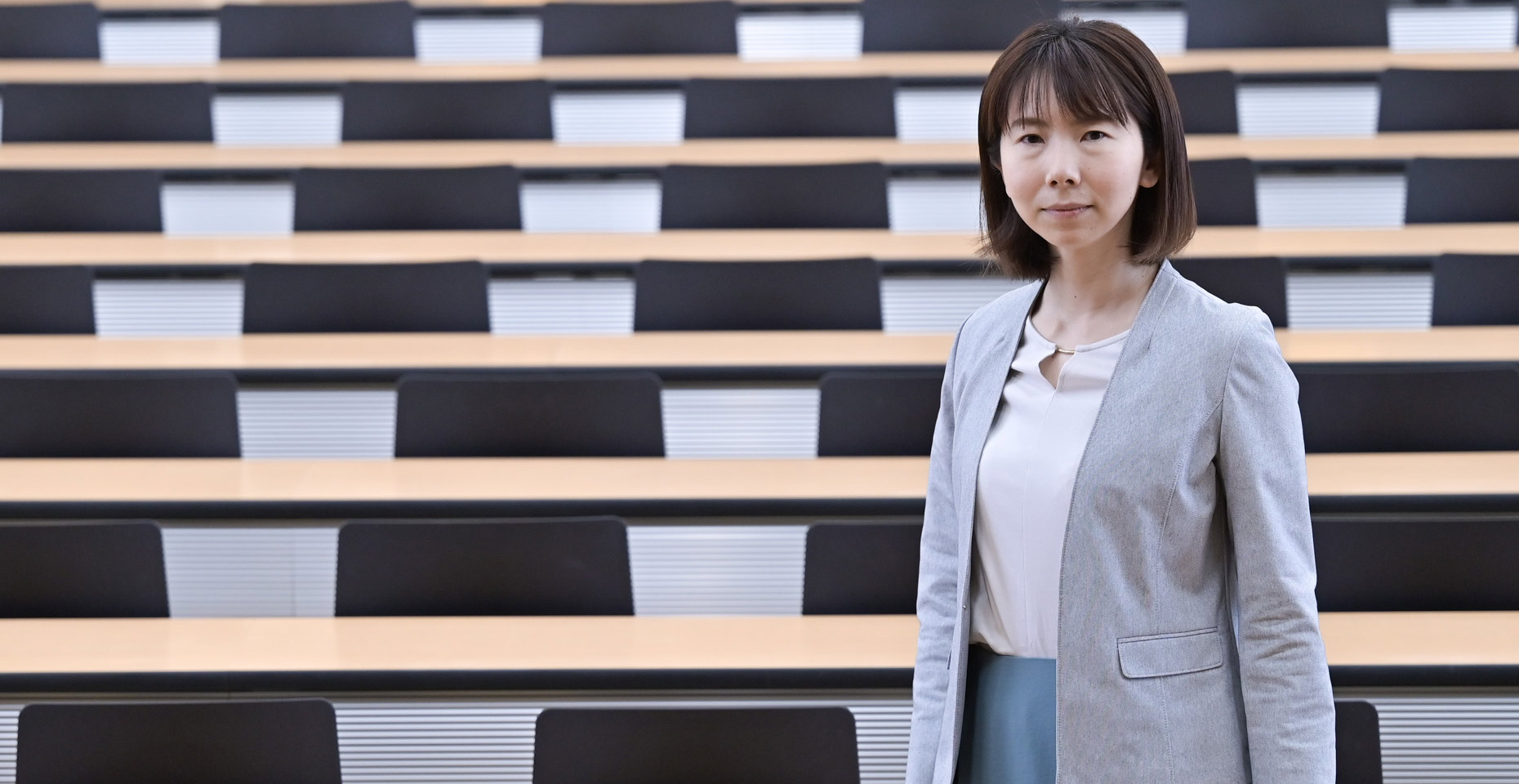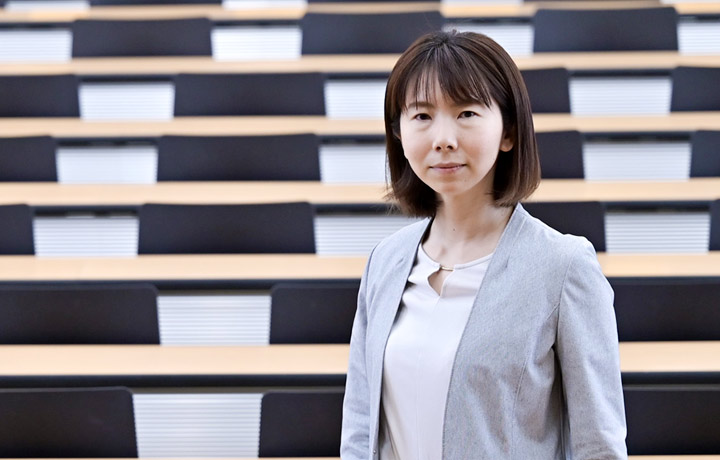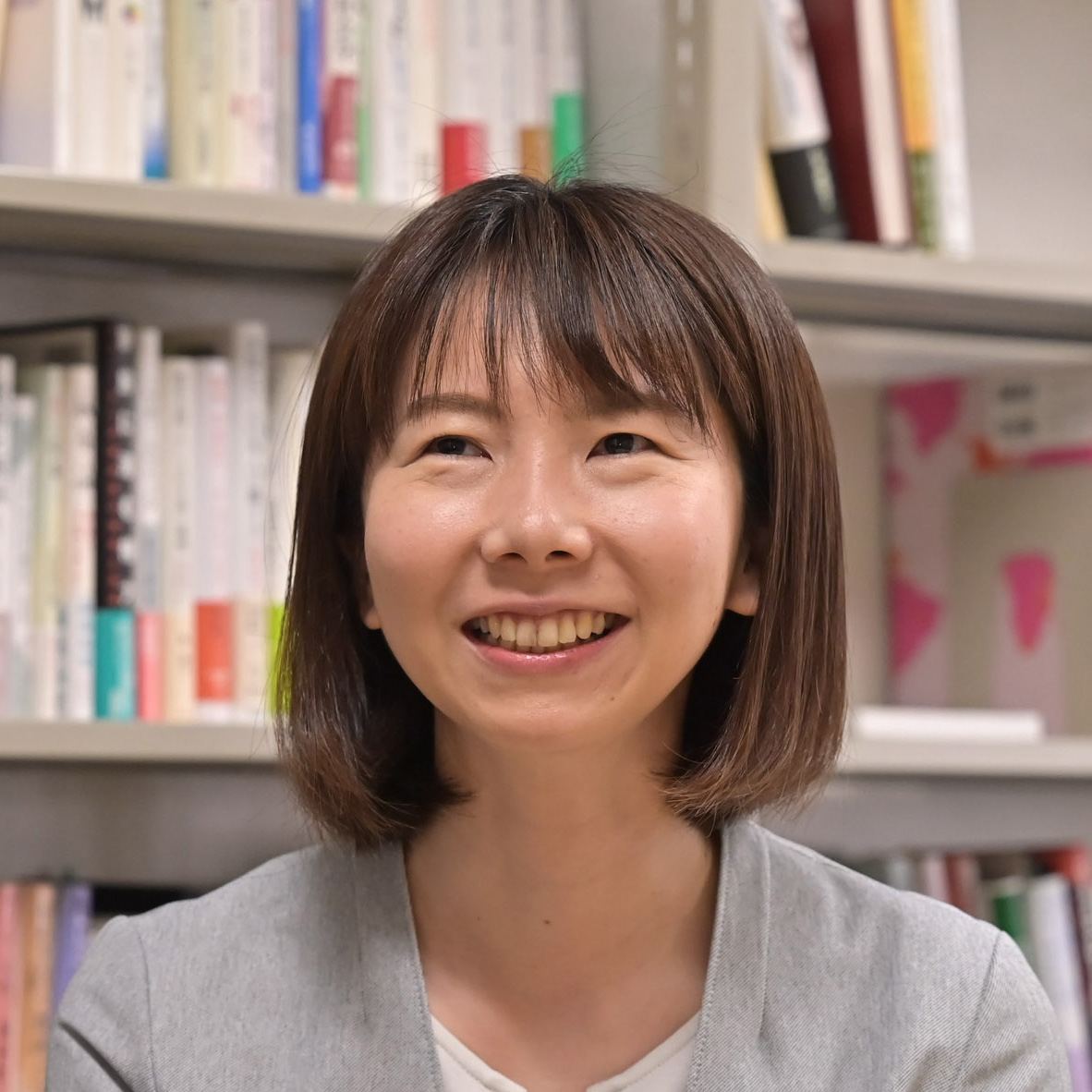While the term “Poverty” may give the impression of something in the past or happening in other countries, it has been found that in modern-day Japan, one in seven children lives in a state of relative poverty. Despite various measures being taken, support often fails to reach those who need it, leading the government to establish a Children’s Support Bureau under the newly formed Children and Families Agency in April 2023, aimed at strengthening poverty countermeasures. In this article, we interviewed Associate Professor Ai Ando from the Faculty of Education to understand the cause and implications of child poverty, as well as a large-scale longitudinal study that has just begun to examine the current situation of children.
“Child Poverty”: once believed to be non-existent
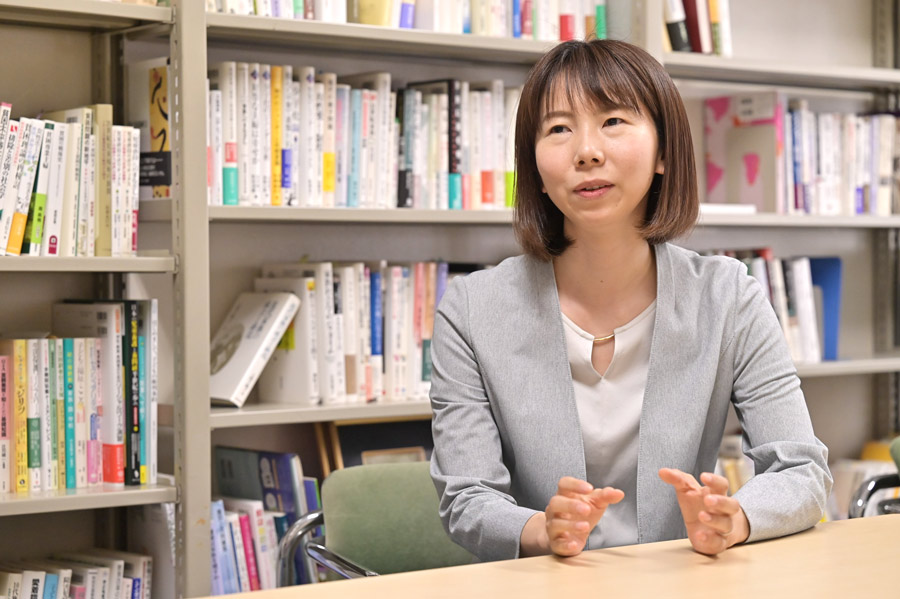
―Why is “Child Poverty” in the spotlight now?
It was believed that poverty problems had been solved in Japan after its economic recovery in the 1960s. It was considered a problem for people in certain special circumstances, such as homelessness. However, around 2008, the term “child poverty” began to be highlighted again. Since 2000, the relative poverty rate of children has remained at around 14%, causing a significant impact on society with the realization that “there are actually children living in poverty in Japan.”
―What is “Relative Poverty?”
“Relative poverty” refers to households with disposable income below half of the median income (1.27 million yen in 2018), and “child poverty” refers to the existence and living conditions of children under 18 who are in relative poverty. However, in my opinion, poverty should be understood more broadly, not only in terms of economic factors, but also as a situation “where a child is placed in an environment where they cannot fully utilize their own potential.”
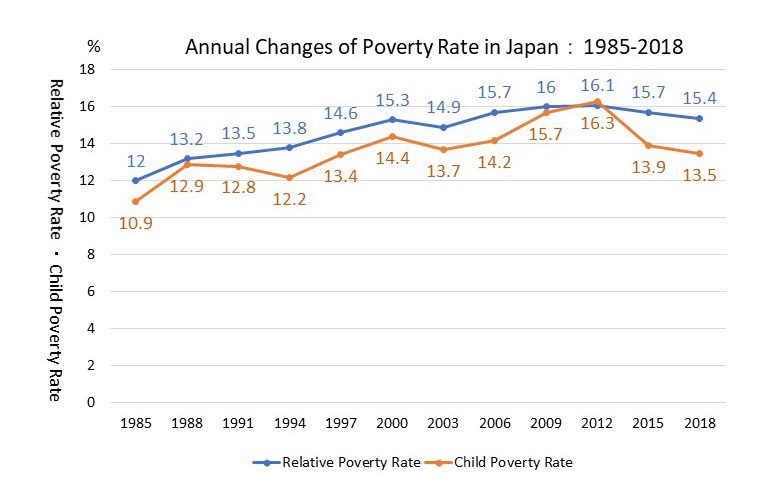
Causes and Long-term Effects of Poverty
―What are the underlying causes of poverty?
While researching poverty, abuse, and juvenile crimes, I realized that the problems surrounding children may be fundamentally interconnected. It has become apparent that a child’s inability to rely on their caregiver properly can have various long-term effects on the child as they grow into adulthood.
―Please explain in more detail about “Appropriate Dependency”
Here, “Dependency” can also be expressed as “being taken care of.” I believe that the lack of financial, psychological, and time resources for adults to take care of children, as well as the assumption that mothers are the primary caregivers, are at the root of children’s issues, including poverty. It is not just about poverty that simply means “not having enough food for tomorrow,” but also includes situations where caregivers have long working hours to make a living and thus no time to listen to children carefully, or where the household income is average. Still, the main earner does not provide family members with enough money to cover living expenses, and thus, family members are always struggling to make ends meet. I also feel that activities necessary for raising children are not sufficiently respected in society.
―What kind of problems can arise in an environment without resources?
When people lack financial and time resources, there is a tendency to rely on carbohydrates and fast food for meals, which can lead to health concerns such as obesity and diabetes in the future. Regarding education, parents face problems such as not having enough time to read books for children even if they purchase them, or being unable to attend cram schools, which can affect their future education, career, and income. Poverty has multiple facets, and researchers are currently uncovering mechanisms that accumulate long-term effects on children through various pathways.
“Regretting Motherhood”: Questioning Distortion of Mother-dependent Society
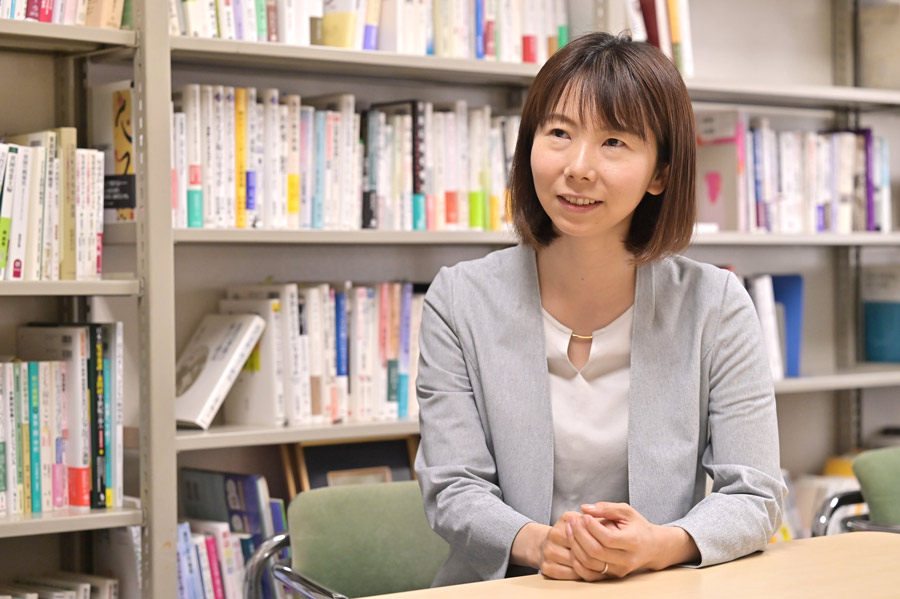
―Many working mothers struggle with balancing parenting and their jobs
In Japan today, a parent has primary responsibility for children. Particularly, mothers are strongly expected to fulfill child-rearing responsibilities. Furthermore, even though mothers are expected to work hard under the slogan of “women’s active participation,” household chores remain unfairly distributed, highlighting the difficulties that mothers face in their lives.
―Becoming a mother in Japan means facing the difficult reality of being forced to take on the social “motherhood image”
“Japan is a society that depends heavily on family for childcare, which can also be described as a mother-dependent type. This custom has created significant strains in society. In this context, the book “Regretting Motherhood” by Israeli sociologist Orna Donath, published in the spring of 2022, became a topic of discussion. The book, based on interviews with women struggling with the perfect image of motherhood forced upon them by society, has sparked both praise and criticism. It also has served as a major catalyst for questioning the heavy burden of the social role of motherhood.
The relationship between poverty and gender inequality is also deeply rooted in society: the poverty rate of single mothers highlights the gender pay gap and the working environment where women who have given birth face the difficulty to continue working as regular employees.”
A large-scale project to uncover poverty from various angles
―Now I realize that poverty is a complex issue involving various factors.
How do you approach the issue of poverty?
The state of “poverty” is still a highly debated topic, with the need for a comprehensive analysis of the situation faced by children from various perspectives, such as health, nutrition, obesity rates, and educational disparities, in addition to the income-based poverty rate.
More researchers are getting interested in child poverty in fields other than traditional poverty research. Researchers are now seeking to better understand the complex issue of poverty from a cross-disciplinary and multifaceted approach.
In this context, I am also a member of a large-scale project, “Establishment of Child Poverty Research,” which was selected for the FY2022 Grants-in-Aid for Scientific Research (KAKENHI) program, Transformative Research Areas (A).
In addition, in 2019, the “Consortium for Child Poverty Survey Research” was established as a research hub for child poverty in Japan. The consortium manages some of the survey data on child poverty conducted by municipalities nationwide, making it available for use in the project. The project will dig deeper into poverty issues from new perspectives, such as regional factors contributing to poverty.
For a future in which everybody prospers
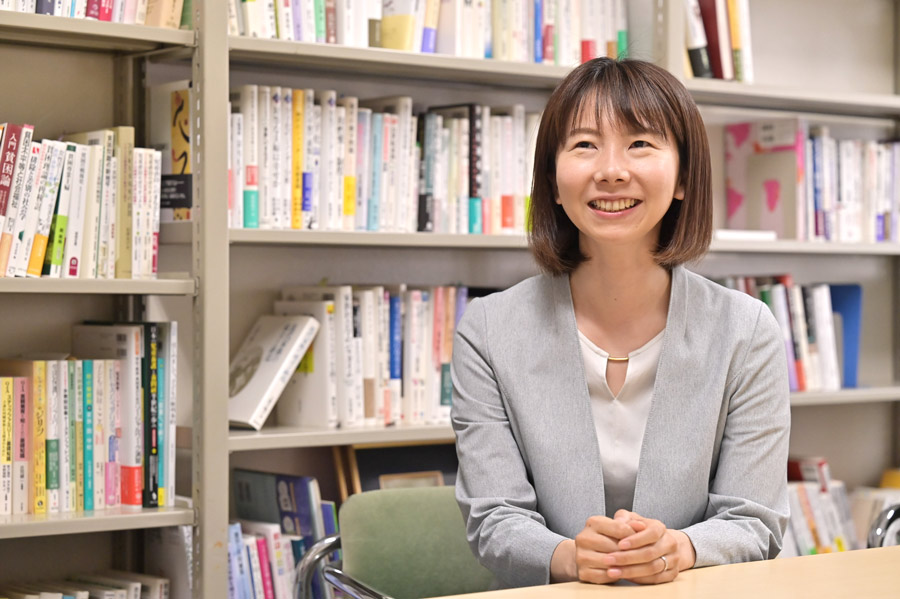
―Uncovering and delving into issues that society has ignored can be mentally taxing. Where do you find the motivation for this type of research?
I am primally engaged in empirical research. In particular, I place great importance on going out into the field of children’s lives and listening to the voices of those involved. Poverty and family-related issues are often difficult to see and may include painful experiences that people are hesitant to share. My motivation comes from the desire to respond to the courage and opportunity of those who have spoken to me in difficult circumstances.
Of course, the content that people share with me is just a part of their lives. With that in mind, my role is to identify the universality that emerges from their stories, that is, to uncover the situation of those who cannot speak out behind the individuals I have interviewed. When conveying these voices, I always include statistical data. I believe that scientific evidence is important to demonstrate that these issues actually exist in our society.
―What is the ideal society you envision for the future?
I envision a society where the Rights of the Child (Life survival, Development, Protection, and Participation) are secured, no matter what kind of parents they are born to or what kind of environment they grow up in. We also need to create a society where caregivers do not suffer from caregiving. For children, parents are the most important and closest people. The “standard family” that the Japanese government assumes seems to be a family of a full-time working father, a housewife (or part-time worker) mother, and two children. However, we now have diverse family structures, such as single-parent families, alternative care (Foster parents, Children’s homes, and Adoption), and even families with same-gender parents. There are also important caregiving relationships with people who are not part of the “standard family.” I think that being “different from the standard family image that the government envisions” is one of the reasons why children and caregivers are suffering these days.
I want to continue my fieldwork and convey the voices of those affected so that we can move towards such a society where children can grow up healthy, all caregivers are respected, and families do not become isolated, no matter what kind of environment they are in.
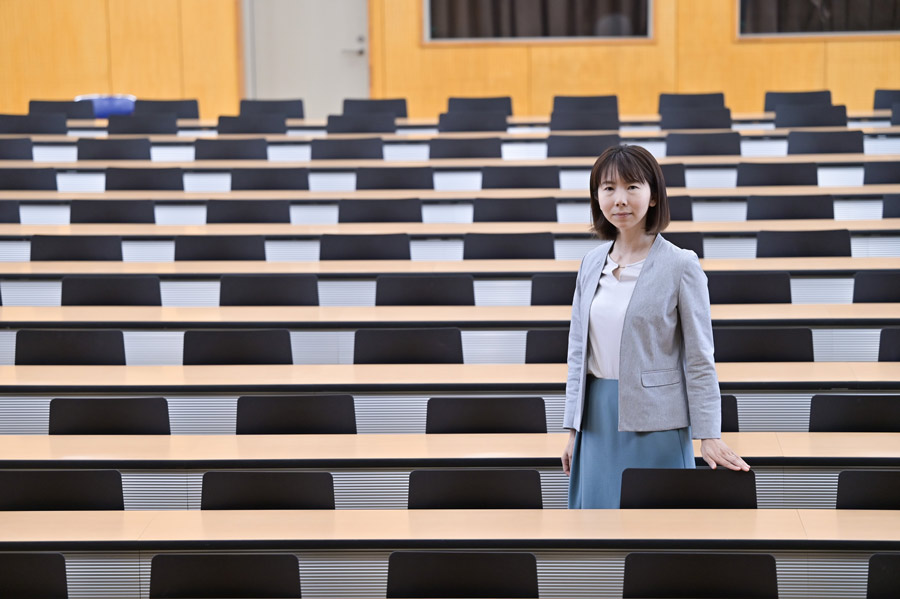
Series
Paving the Way for the Future of Children
Efforts to support the healthy growth of children are crucial. Our researchers confront the social issues surrounding modern children to protect “Children’s Present and Future.”
-

#1
2023.02.15
Children-centered support and school operations: On the occasion of the founding of the Children and Families Agency
-

#2
2023.03.10
What is “Digital Citizenship” Education that lives in a future society?
-

#3
2023.04.19
“Journey of the Brave,” a new cognitive behavioral therapy program: a solution for children’s anxiety
-

#4
2023.05.26
Examining Social Injustice of Modern Society through “Child Poverty”: Creating a Society Where Every Parent is Respected, and Every Child Thrives
-

#5
2023.06.16
Fostering Inclusive Education for the Gifted and All: Unlocking Northern European Insights for Special Needs Learners
Recommend
-

Understanding the Relationship between Diseases and Membrane Protein Structure
2022.07.26
-

CUTICULA: A Secret of Unique Body Shape of Insects −Exploring the Sophisticated Mechanism Behind their Elongated and Round Bodies
2023.12.11
-

“Making Bread from Plastic”: A Dream Recycling System for a Sustainable Future
2023.05.11


